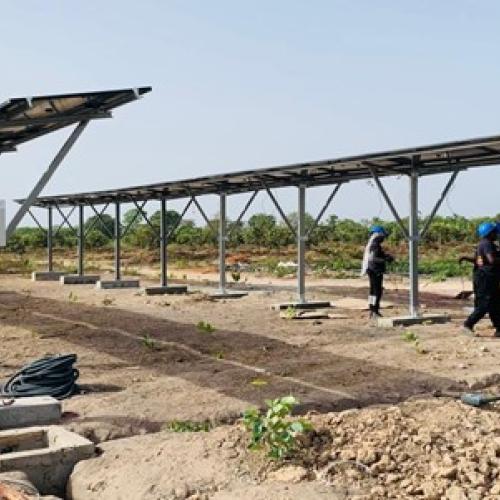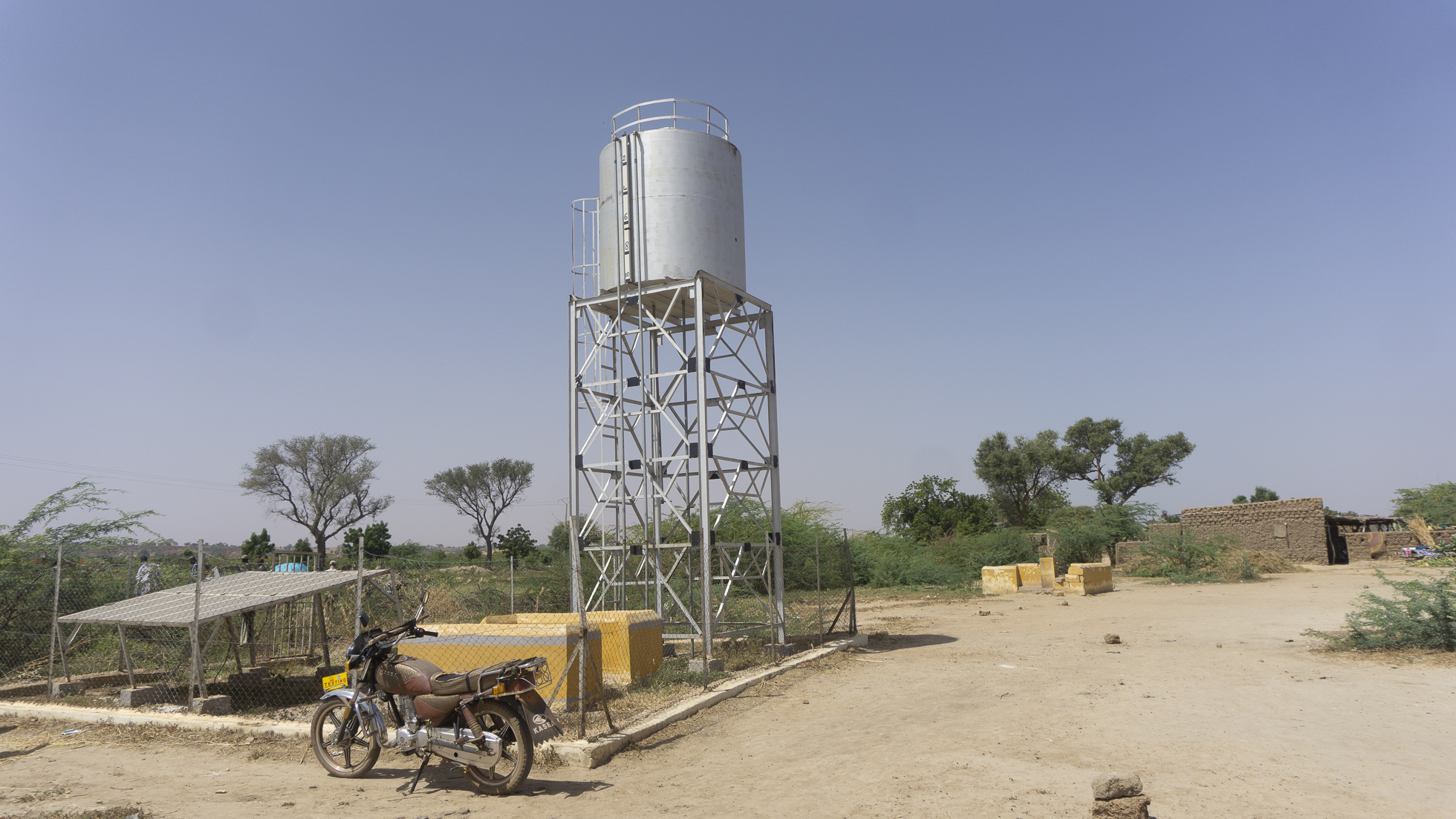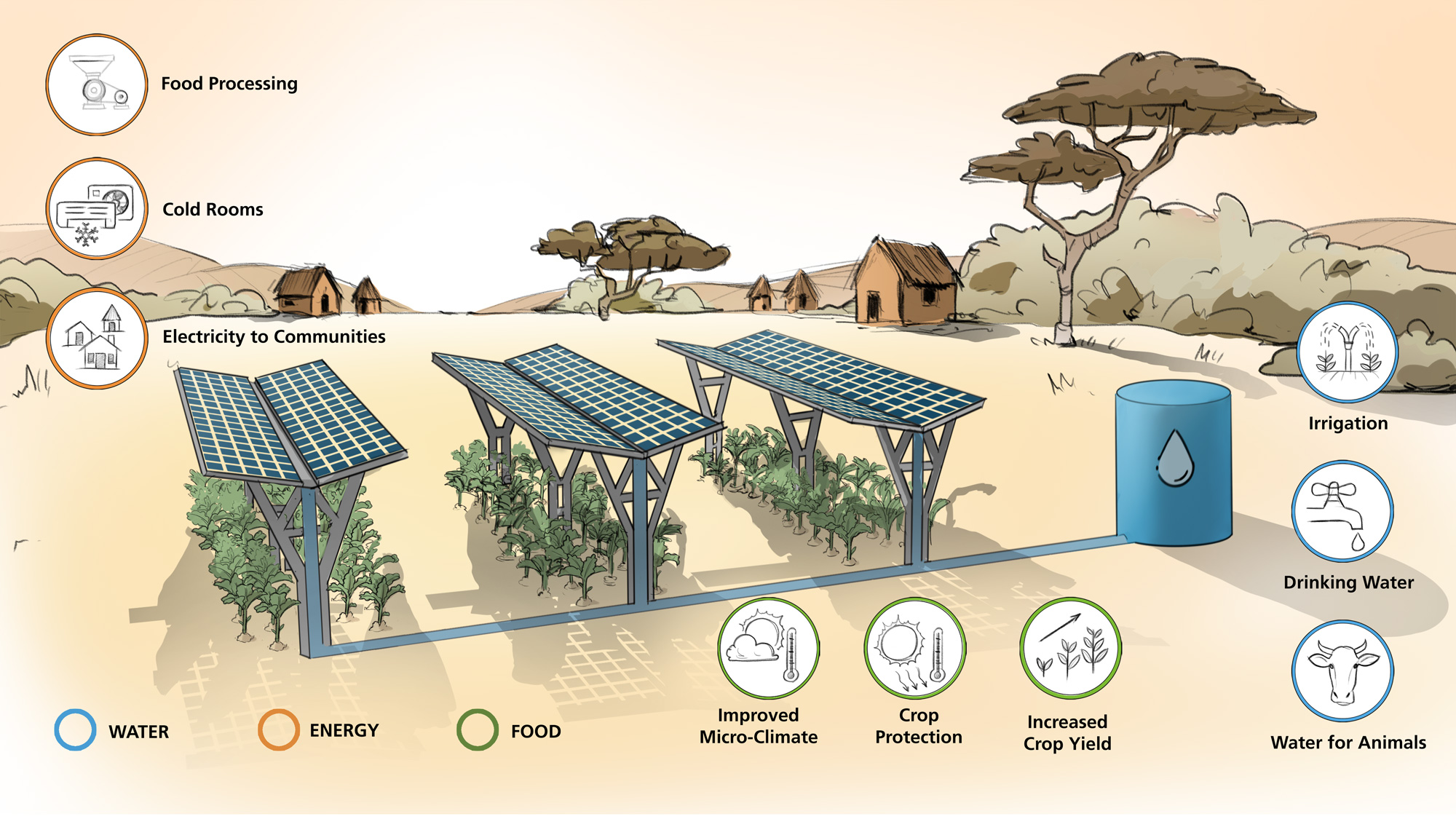APV-MaGa: Installation of agrivoltaics in The Gambia

Coordinator: United Nations University
Contact Person: Dr. Ambe Emmanuel Cheo
Address: Platz der Verainten Nationen 1, 53113 Bonn
Phone.: +49 228 815 0244
Email: cheo(at)ehs.unu.edu
Project partners in Germany
Project partners in Mali and The Gambia
Mali and The Gambia are among the regions in the world that are most vulnerable to climate change. Extreme weather events such as droughts, floods and heat waves threaten to increase in intensity and duration in the future. Inadequate access to affordable energy also limits social advancement opportunities for low-income populations, women and youths. The APV-MaGa project is based on a cooperation across the national borders of Germany, Mali and The Gambia and aims to improve the supply of food, water and electricity to the local population while increasing the resilience of the agricultural sector to climate change.
Mali and The Gambia are part of the West African Sahel region and have been exposed to extreme climate events such as droughts, floods and heat waves over the past several decades. Climate change is very likely to have a profound impact on food security as well as overall regional stability. This, in turn, will increase pressure on national governments to comply with international climate agreements. Inadequate access to affordable energy also limits social advancement opportunities for low-income populations, women and youths. In many parts of Africa, the energy system faces a number of interrelated challenges, including widespread access to electricity, ensuring security of supply and increasing environmental degradation.
In both Mali and The Gambia, the demand for solar power generation through ground-mounted photovoltaic systems is steadily increasing. The limited availability of arable land combined with an increasing demand for land has already led to an intensification of land-use competition as well as to economic, ecological as well as social conflict constellations in the two countries. In addition, the extraction and consumption of water is usually not clearly regulated, which leads to the exploitation of water resources and has a direct impact on food production. Furthermore, for many rural regions in West Africa, the necessary capital for the installation of an agrophotovoltaic systems is currently not available or very difficult to finance.

The vision of the APV-MaGA CLIENT II project is to establish agrophotovoltaics (APV) as a sustainable energy system that provides food, water and electricity to the local population while increasing the resilience of the agricultural sector to climate change. Taking a holistic approach, the project's interdisciplinary consortium seeks to demonstrate the technical and economic viability of a threefold land-use system. In doing so, the goal is to gain a deeper understanding of the synergies and interactions within the water-energy-food nexus in partner countries and in the West African context. The project also considers different water management systems, such as rainwater harvesting, groundwater extraction and inter-seasonal water storage for irrigation purposes.
During the course of the project, the team will install five pilot systems and test business models that have been tailored to the local context. The goal is to strongly involve (smallholder) farmers in Mali and The Gambia and to promote long-term investments. This will enable the rural population to become owners of an APV system. Small and medium-sized farms will be reimbursed for their initial investments. The total investment costs for the demonstrators will be divided into commercial and research and development (R&D) costs. The project consortium will fund the R&D component, which accounts for 50% of the total investment, through the Federal Ministry of Education and Research (BMBF), while local partner Namene Solar Ltd will finance the remaining 50%. The various demonstrators will be employed to optimize the use of the electricity generated as well as to ensure the profitability of the crop yields for the local communities. The integration of sustainable water management and the socio-economic anchoring of the overall concept are at the core of the R&D activities.

The APV-MaGa project involves the installation of a 200-kWp demonstrator on approximately one hectare of land in Katibougou, Mali. Four demonstrators, each with a capacity of approximately 62.5 kWp, will be installed in selected communities in The Gambia. These include an irrigated rice farm; a pilot system with integrated rainwater harvesting; a "transformation platform"; and a cold storage facility for food preservation. The goal is to cover the loans needed for financing through investment income from the sale of energy and agricultural products as well as with other potential services such as the sale of water. APV represents a great opportunity to increase the regional value of rural communities, as the business concepts will be designed in such a manner that the facilities can be managed primarily by farmers, communities and small and medium enterprises.
